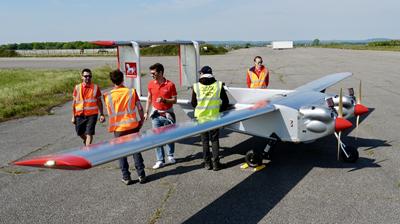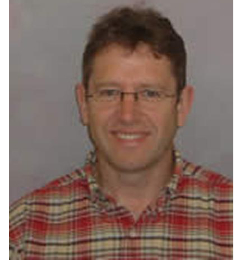Southampton drone research focuses on humanitarian aid, forest fires and volcano activity

From safely dropping aid into remote villages, to monitoring the Amazon for devastating forest fires, to daily trips to an active volcano’s crater to assess the danger – drones are fast becoming lifesavers.
Three research projects at the University of Southampton are at the cusp of changing lives for the better by breaking new ground in the field of unmanned aerial vehicles, or UAVs.
ULTRA (Unmanned Low-cost TRAnsport) is the UK’s heaviest non-military UAV, weighing 350 kilos. It’s powered by an industrial engine and can fly for 1,000 kilometres at a time, at speeds of up to 100kph. It’s low cost to build and maintain. And it’s a humanitarian aid aircraft.
Five postdoctoral engineering researchers, led by Professor Jim Scanlan, have been developing ULTRA, which will be used to drop humanitarian aid in South Sudan.
Project IPANEMA (Indigenous Production of robotic Aircraft using Natural and Environmentally-friendly Materials from and for the Amazon region) has two aims – to monitor and spot forest fires, and to give locals in the Brazilian Amazon the chance to make a living.

Four undergraduates working on the project are working on designing and building a drone made out of locally-sourced materials.
Project AVM (Autonomous Volcano Monitoring) is developing a drone that can be operated and maintained by the local community in Guatemala to monitor volcanic activity.
Read more about these three ground-breaking projects in the latest edition of Re:action, our research and enterprise magazine.
